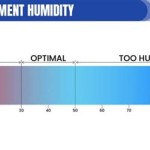Should Basement Walls Be Insulated?
A basement is a valuable addition to any home, providing extra space for storage, recreation, or even living quarters. However, basements can also be cold and damp, making them uncomfortable to use. One way to improve the comfort level of a basement is to insulate the walls. But is it really necessary to insulate basement walls? Let's take a closer look at the pros and cons of basement wall insulation.
Benefits of Basement Wall Insulation:
There are several benefits to insulating basement walls, including:
- Increased comfort: Insulation helps to keep the basement warmer in the winter and cooler in the summer, making it more comfortable to use.
- Reduced energy costs: Insulation can help to reduce heat loss through the basement walls, which can lead to lower energy bills.
- Improved air quality: Insulation can help to reduce moisture and mold growth in the basement, which can improve air quality and reduce the risk of respiratory problems.
- Increased property value: A well-insulated basement can increase the value of your home.
Drawbacks of Basement Wall Insulation:
There are also a few drawbacks to insulating basement walls, including:
- Cost: Insulating basement walls can be expensive, especially if you hire a professional to do the work.
- Space: Insulation can take up space in the basement, which can make it feel smaller.
- Moisture problems: If the basement is not properly waterproofed, insulation can trap moisture against the walls, which can lead to mold growth.
Is Basement Wall Insulation Right For You?
The decision of whether or not to insulate basement walls is a personal one. There are both pros and cons to consider, and the best decision for you will depend on your individual needs and circumstances. If you live in a cold climate and want to make your basement more comfortable, insulation is a good option. If you live in a warm climate and are concerned about the cost of insulation, you may want to consider other ways to improve the comfort level of your basement, such as adding a dehumidifier or improving ventilation.
Types of Basement Wall Insulation:
If you decide to insulate your basement walls, there are several different types of insulation to choose from:
- Fiberglass insulation: Fiberglass insulation is the most common type of insulation used in basements. It is made from glass fibers that are bonded together with a resin. Fiberglass insulation is relatively inexpensive and easy to install.
- Cellulose insulation: Cellulose insulation is made from recycled paper. It is more expensive than fiberglass insulation, but it is also more environmentally friendly. Cellulose insulation is a good choice for basements that are prone to moisture problems.
- Spray foam insulation: Spray foam insulation is applied as a liquid that expands to fill the space between the studs. It is more expensive than fiberglass or cellulose insulation, but it is also more effective at reducing heat loss. Spray foam insulation is a good choice for basements that are difficult to insulate with other types of insulation.
Installing Basement Wall Insulation:
If you are not comfortable insulating basement walls yourself, you should hire a professional to do the work. However, if you are handy and have some experience with home improvement projects, you may be able to install the insulation yourself. Here are the basic steps:
- Prepare the walls: Clean the walls and remove any debris. If there are any cracks or holes in the walls, seal them with caulk or expanding foam.
- Install the insulation: Cut the insulation to fit the walls and install it between the studs. Use a staple gun or adhesive to secure the insulation in place.
- Cover the insulation: Cover the insulation with a vapor barrier to prevent moisture from getting into the wall cavity.
- Finish the walls: Finish the walls with drywall or paneling.
Conclusion:
Insulating basement walls can provide several benefits, including increased comfort, reduced energy costs, improved air quality, and increased property value. However, there are also some drawbacks to insulating basement walls, including cost, space, and moisture problems. The decision of whether or not to insulate basement walls is a personal one. If you live in a cold climate and want to make your basement more comfortable, insulation is a good option. If you live in a warm climate and are concerned about the cost of insulation, you may want to consider other ways to improve the comfort level of your basement, such as adding a dehumidifier or improving ventilation.

How To Insulate Your Basement S Concrete Walls The Seattle Times

Do I Need To Insulate My Basement Walls News And Events For Total Finishing

How To Finish A Basement Diy

Should I Insulate My Basement Constellation

Should I Insulate Basement Walls For A Truly Finished Space

Basement Insulation Albany

Inorganic Basement Wall Panels In Sterling Arlington Falls Church By Expert Contractors To Beautiful Insulated

Basement Blanket Insulation Building America Solution Center

Do Concrete Basement Walls Need Insulation

Basement Blanket Insulation Building America Solution Center
See Also








